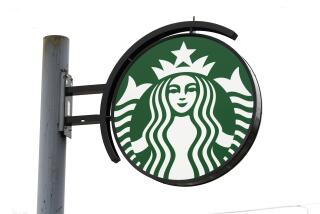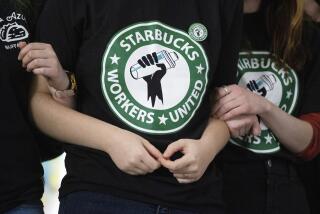Starbucks CEO pours on the schmaltz
“Onward: How Starbucks fought for Its Life Without Losing Its Soul” picks up where author-Chief Executive Howard Schultz’s previous book, “Pour Your Heart Into It,” left off.
The latter is the story of the coffee chain that Schultz built from the early 1980s. “Onward” is the story of how Starbucks faced the demolition ball until Schultz returned as CEO in 2008, eight years after he had stepped down.
It is a tale of derring-do, traversing the globe and crowded with a cast of exceptional people. But more than anything the new book is a love story: a paean to coffee and good people (be they baristas or farmers), to Starbucks and, perhaps above all, to Schultz himself, the affable, poor-boy-made-good without whom none of it would have happened.
Schultz returned as CEO in 2008 because he felt like “a former captain who could sense his ship slowly sinking.” And sinking Starbucks certainly was: Sales were sliding and the share price heading south.
Much of the story will be familiar to students of business, investors and even coffee drinkers. There is the leaked memo in 2007 in which Schultz pours his heart out over the commoditization of Starbucks, fretting over the loss of romance, theater and even the aroma of coffee in stores; the temporary closure of 7,000-odd U.S. stores to retrain baristas a year later; and a subsequent scaling back of the coffee shops.
As one would expect in a work subtitled “How Starbucks Fought for Its Life Without Losing Its Soul,” published by Rodale, the book is heavily laced with schmaltz and stuffed with tales to tug the heartstrings.
There is the barista who donated a kidney to a customer; another who bought a poor fellow worker a cow; and accounts of Schultz’s undereducated father lying ill without healthcare insurance.
The vibe can be summed up in a quote given to Schultz: “When you get into a tight place and everything goes against you, till it seems as though you could not hang on a minute longer, never give up.”
Never giving up is what Schultz does best. His philosophy centers on caring about people — or partners, as Starbucks workers are called — passion and blue-sky thinking. This, the more cynical reader may feel, sometimes leads him down dubious paths.
To be fair, there are descriptions of taking practical action too, including the replacement of computers so old they could not access the Internet or run word processing software.
The supply chain, in which operating costs were ballooning to about $100 million a year, also comes under scrutiny, as does the bloated bill for wasted food.
Even so, it would have been nice to have more meat in the tale of Starbucks’ turnaround. We learn that slashing stores and staff was heart-rending. We discover good communications are vital; Schultz is torn to pieces when his carefully worded memo is leaked. And we learn that consultants are worth hauling in.
The book is also disappointingly light on overseas expansion. Starbucks has been phenomenally successful internationally — it has nearly 6,000 stores outside the U.S.
But in the book, this merits very little coverage, and much of what does appear will be underwhelming to the average business reader. Some is even cringeworthy, as when Schultz is delighted by the offerings at one Starbucks in China, which include something called Iced Oriental Beauty.
His enthusiasm for other offerings on the menu looks a little exaggerated, given what is generally available in cafes in virtually any country in the world: “It was obvious that our partners were truly thinking outside of the box. Sesame noodle salad. Spicy Thai beef wrap. Soup. Lasagna! ... I was impressed by the creativity I was experiencing.”
If the book is any guide, such Pollyanna-isms are second nature to Schultz. He is trusting to a fault (“I conduct my life with an expectation that people will do the right thing”) and seldom has a bad word to say about anyone, even those he is ousting.
His own personal failures are also given short shrift. A rare example is the adoption of a new drink, Sorbetto, which was mispriced and made in machines that took 90 minutes to clean at the end of the day. Sales failed to stack up as anticipated and eventually — with Schultz feeling “somewhat responsible” — the drink was abandoned.
Instead, the book is testament to his drive and dedication. Here is a man who, on holiday with wife and children in Hawaii, goes off on daily three-hour bike rides with Michael Dell, founder of the Dell computer company, and checks sales figures daily — all without eating breakfast.
He is a man who never writes down his speeches. Since whole chunks of speeches and presentations form a fair part of the book, this suggests he is blessed with a perfect memory. Either that or the book, like his speeches, comes from the heart — which would explain both its strengths and its weaknesses.
Louise Lucas is a columnist for the Financial Times of London, in which this review first appeared.






